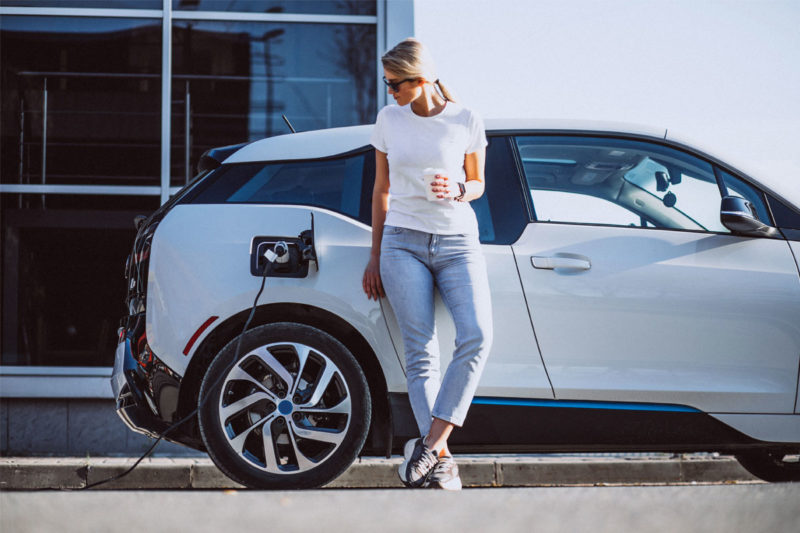There has already been a lot of talk about the electric car. At first it was presented as an almost miraculous alternative to the conventional car, but we soon started to hear criticism of it. Here are the answers to your questions.
What is an electric car?
It’s a car that’s operated by a battery built into the vehicle, unlike standard “combustion-engine” cars that run on petrol or diesel.
There are various types of electric car, like the hybrid car that has a combustion engine and an electric motor. The latter retrieves braking energy, turns it into electricity and feeds it into the battery. As for the hydrogen car, it generates its own electricity using a fuel cell that turns this hydrogen into electricity. Electric vehicles are designed to take the place of conventional combustion-engine cars, and have a part to play in energy transition. They can do so both in terms of superseding petrochemical oil, supplies of which are dwindling, and reducing CO2 emissions which are in large part to blame for climate disturbance. But electric vehicles still have some way to go along the road to perfection… Unfortunately!
Is the electric car more polluting than the standard car?
No, given that the electric car has no exhaust pipe and therefore does not emit CO2 while being driven. However, life cycle analysis of the electric vehicle reveals that its manufacture emits more greenhouse gases and requires more energy than is required for a combustion-engine vehicle, due to its battery and more sophisticated electric motor. To determine which of the two is the least harmful ecologically speaking, you also have to take account of the kilometres that they can cover (which depends on the model), the weight of each vehicle, the impact of its components, end-of-life recycling, etc. This is a real headache, since the extraction and refining of the metals needed for the batteries, and the electronic side of electric car production, also entail soil and water pollution. However, when the motor takes over much of what is called “regenerative” braking, the electric car sheds fewer fine particles (which come from friction between the tyres, road and brake pads) than other cars. Lastly, whether a combustion-engine or electric model, the most eco-friendly car is the most lightweight one. This is the first criterion to consider. An electric SUV is not preferable to a combustion-engine city car.
Do electric cars have the same ecological impact the world over?
Absolutely not! Because the electricity used by the car (that which comes from the charging point) is generated from energy sources that vary from country to country. Electricity can be generated either from polluting fossil fuels like coal, fuel oil (petrochemical oil) and gas, or from “green” or “decarbonised” energy sources like nuclear power, hydraulic power and renewable energies (solar, wind, geothermal, biomass, etc..) which don’t emit greenhouse gases. Each country uses a mix of these energies to generate all of its electricity. So an electric car charged up in France, where 75% of electricity comes from nuclear power, entails very low CO2. emissions However, an electric car in China or India runs on electricity that’s generated mainly from coal, the most polluting energy source in terms of CO2 and fine particles.
What’s the problem with electric components and batteries?
Electric motors and batteries are the cause of an increasing amount of mining industry pollution due to the large quantity of metals required for their manufacture. The extraction of these metals, which are also called “rare earth” minerals (lithium, cobalt, aluminium, copper, etc.) is to blame for heavy soil and water table pollution in particular. The mineral deposit seams are over-exploited, in countries which often have less-than-stringent environmental standards, and to the detriment of populations. This sometimes includes exploitation by way of child labour in mines. Factor in the following: the staggering energy footprint associated with mining; the storage of highly toxic waste, which most often gets discharged into the natural environment or the sea; deforestation due to mine digging that triggers soil erosion and depletion; and all the threats posed to biodiversity; and the electric vehicle cannot be called “eco-friendly”. Far from it.
Is it advisable to replace all cars with electric models?
No, that wouldn’t be advisable, because of all the pollution caused.
With all cars being electric, it would also be necessary to meet the power demand of millions de vehicles that could be plugged into the grid to be charged up at the same time. This is liable to make the power grid collapse and trigger a blackout across a whole region, as has already occurred in Norway.
Moreover, there’s the risk of a rebound effect through users who, whilst wanting to do the right thing ecologically, wish to get the most profitable use out of their electric vehicle purchase. Consequently, they use it more heavily and more often. This is a phenomenon that has already been observed in Sweden and Norway, a country where electric cars are very common and used for short journeys, instead of walking or riding a bicycle. This is a habit that flies in the face of reining in pollution and global warming, unlike car sharing, public transport and especially cutting down on journeys.
So the electric car is not THE solution. It has its drawbacks, but also has the merit of being an innovation with room for improvement. Not least when it comes to rare earth minerals, whose exploitation is super polluting, and which are so difficult to extract that they are liable to run out very quickly. Whereas they could be retrieved and re-used if batteries were recyclable.







